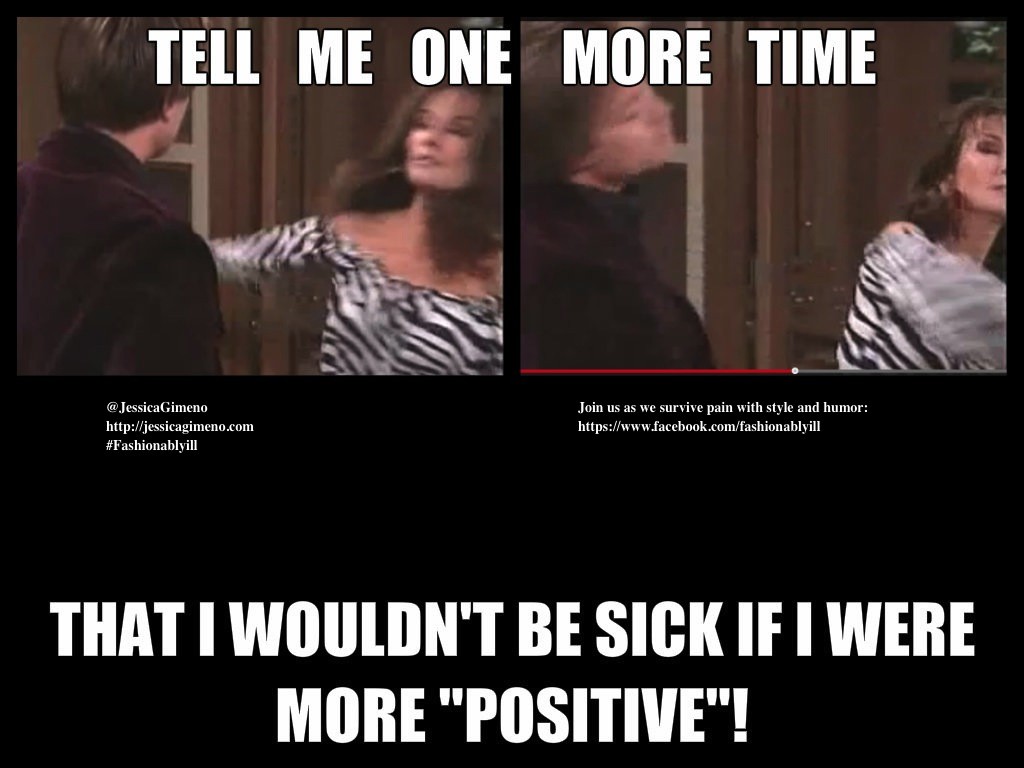The Church, Depression, & Mental Illness: 3 Myths That Need To Go

My personal experiences and years of working in mental health nonprofit led me to write a diplomatic letter to the pastor who has thousands of people in his congregation. I wanted him to re-address the subject of depression because one in four American adults fight mental illness (or over 61 million people), with depression being the most common type. With suicide as the tenth leading cause of death in the United States and third leading cause of death among young adults, it stands to reason that mental illness is a crisis many of his congregants battle. Christians, like any other demographic, are not immune to mental illness. So far, my email has received no response.
His Incomplete Remarks on Depression
The pastor’s sermon was about generosity. He went on a two-minute tangent about depression, most likely prompted by Robin Williams’ death. He laughed as he struggled to remember the comedian’s name and asked the congregation for help. (I always laugh when I speak about suicide.) Then, he said: 1) Many people with depression are depressed because they do drugs and alcohol. 2) Many depressed people isolate themselves. That was it. No mention of the genetic factors and environmental factors that are often part of depression and substance abuse. (Like mental illness, addiction is considered a “brain disease;” that is the most widely held belief in the scientific community.) No mention of the fact that even when people with mental illness surround themselves with people they love, they can still feel alone. Indeed, that loneliness is part of having a chemical imbalance. No mention that depression is a disease.
3 Myths the Church Perpetuates Mental Illness:
- Myth: Depression is a choice. | Truth: Depression is not a choice. We need to stop talking about mental illness like it is a choice whether that language is explicit or implicit. In fact, Northwestern University has just developed the first blood test to diagnose major depression in adults. The test identifies depression by measuring the levels of nine RNA blood markers. In my unanswered letter, I wrote, “Pastor L discussed depression but never mentioned the fact that some people are born with mental illnesses. I accepted Christ into my heart at the age of five and have never experimented with any alcohol or drugs. But I was diagnosed with bipolar at eighteen–that is a disease a person does not bring upon oneself through his/her actions. It is a disease you are born with…Unfortunately, many Christians think that all depression is a consequence of sin and often they do not get the professional help they need.”
- Myth: Faith means prayer is enough. | Truth: Faith and seeking medical help are not mutually exclusive. A friend spoke to me about how her church gave her grief for seeking professional help for postpartum depression. Here is an analogy: Recently my right foot became swollen due to mosquito bites. I have Myasthenia Gravis and psoriasis; the bites were a serious problem. My doctor cousin treated me. Did asking for medical help diminish my faith? Of course not. (Indeed, last month there were days when the pain of polycystic ovarian syndrome combined with the mosquito-autoimmune complications tested me and I cried out to God for strength. He gives me joy and a peace that transcends my five illnesses.) Similarly, when someone experiences mental illness, seeking psychiatric help does not mean the person has no faith.
- Myth: Taking medication is a sin. | Truth: Getting medical help is taking care of one’s self. Taking prescribed medication is not a sin. The Church does not shame cancer patients who undergo chemotherapy. Likewise, it should not shame people who get treatment for mental illness. Getting help is a wise decision for any sick person regardless of her belief system.
While I once had a pastor who was dismissive of my bipolar disorder, I have also been blessed to know pastors who educated themselves about mental illness and listened to me patiently.
–Your Stylist, Jessica Gimeno
Top 10 Fashionably ill Mental Health Articles
RESOURCES:
- suicidepreventionlifeline.org
- (800) 273-TALK (8255)
- 800-SUICIDE (800-784-2433)
- American Foundation for Suicide Prevention
RELATED ARTICLES:
Rick Warren launches mental health ministry by Sophia Lee, World Mag
Pope Francis and People with Mental Disorders by Lloyd I. Sederer, MD, Huffington Post
Like Fashionably ill on Facebook
Meet other warriors! “Like” us on Facebook at https://www.facebook.com/fashionablyill.






Well-said! I struggled for many years as I dealt with depression and anxiety. I refused medication because I was taught that if you were suffering from a mental illness, it meant there was something acting as a barrier between your walk with God. I felt very guilty that my faith wasn’t strong enough for him to heal me from this struggle. Finally, I came to understand that it’s truly an illness and I sought treatment. My heart hurts for those in the church who are still slugging through believing that if they’re just more faithful, more trusting, more….whatever, God will heal them. God loves us and doesn’t want to see us suffering.
As someone who suffers from bipolar myself I have had people tell me to start praying more and that if I did I could easily stop my medication. I’ve also been told that the medication is not needed because it’s all in my head and I’m making it worse for myself. Worst yet, after my sister’s fiancé passed away and the grieving period hit, my old roommate took me to talk to our pastor because she believed grieving for over a week was too long and I obviously wasn’t praying enough. I’m glad you did write about this and bring it into the public’s eye.
Thank you! This is the 18th anniversary of my brother Steve’s suicide. Fortunately the priest who said his funeral mass understood mental illness and his long struggle with depression. Clergy should be responsible in providing guidance. I will share your message.
Wow. Thank you for taking the time to share. I am blessed by your comments. I think surviving a loved one’s suicide is one of the hardest trials a person can face. I appreciate you sharing my message? Are you on Facebook? Both my blog and I are on Facebook? I am tired from all my illnesses but my experiences (especially my friend’s suicide) motivates me to keep writing and speaking at conventions.
Jessica,
I couldn’t agree with you more. Last year I was hired to deliver my Transforming Stigma speech to a group of pastors and needless to say, it got UNCOMFORTABLE.
This is a HUGE PROBLEM and I will continue to address it. Happy New Year to you and thank you so much for the work that you do to help others.
I look forward to meeting you someday!
Mike Veny